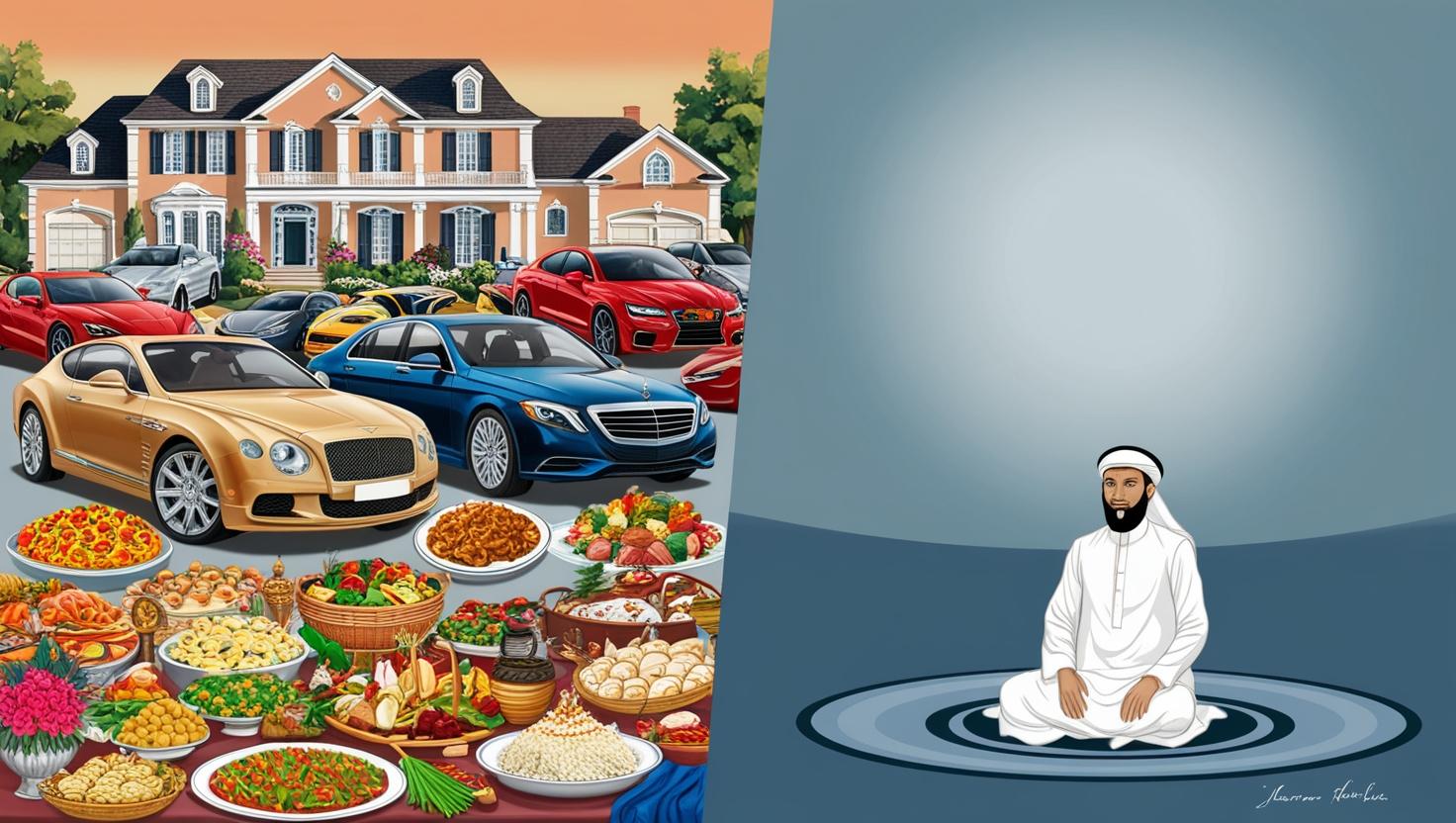Whoever desires this fleeting world, We hasten for them what We will, to whom We will. Then We assign them Hell, where they will burn, disgraced and rejected. But whoever desires the Hereafter and strives for it as they should, while being a believer—it is they whose striving is truly appreciated.”
(Qur’an 17:18–19)
Desire. It lies at the heart of everything we do. In these powerful verses, Allah does not begin with action, or belief, or identity. He begins with desire—what we long for, what drives us from within, what we shape our lives around.
This foundational distinction—that between the one who desires the world (dunya) and the one who desires the Hereafter (akhirah)—defines not only how we live, but how we will die, and ultimately, where we will stand in the sight of Allah.
The world is filled with seekers. Some seek pleasure, comfort, and recognition. Others seek meaning, purpose, and their Lord. Every soul is a seeker—but what matters is what it seeks.
The Nature of the Dunya
The “world,” in and of itself, is not forbidden. It is not sinful to eat, drink, dress well, or live in comfort. Even the companions of the Prophet ﷺ owned homes, wore garments, and rode animals. The problem is not material; the problem is attachment.
Desiring the dunya becomes blameworthy when two things happen:
The heart becomes attached to it, seeing the world as the ultimate goal and endpoint.
The body becomes preoccupied with it, exhausting time and effort in pursuit of fleeting pleasures.
When this happens, life becomes a cycle of indulgence and dissatisfaction. One no longer eats to sustain the trust of the body, but to indulge the craving of the self. One no longer works to serve others or to please Allah, but to climb social ladders and feed the ego.
The dunya itself is not the enemy. The heart’s enslavement to it is.
From Need to Desire, From Desire to Division
Every human being needs three things to survive: food, clothing, and shelter. From these needs sprang agriculture, textile production, construction, commerce, law, and governance. Over time, these needs evolved into desires, and those desires evolved into comparisons, competition, and conflict.
People compared what they wore. They envied what others owned. They fought over land and wealth. Even today, wars rage over water and resources, and families fracture over inheritance and status. What began as a need for survival became a source of division and destruction.
Why? Because the human self—the nafs—is prone to obsession. It craves more and is never satisfied. It compares, envies, and competes. It links identity to ownership and self-worth to status. And in doing so, it forgets its Creator.
The Self: Source of All Struggle
In one of the most solemn oaths in the Qur’an, Allah swears:
“By the soul and the One who fashioned it, and inspired it [to know] its rebellion and its righteousness. Successful is the one who purifies it, and failed is the one who corrupts it.”
(Qur’an 91:7–10)
The root of all personal, social, and global unrest lies not in economics or politics, but in the human self—unrefined, unrestrained, and unanchored from divine purpose.
When the nafs dominates, it blinds. It drives people to consume more, compare more, and chase more, only to find that every pleasure is temporary. The moment fades. The feeling passes. The high disappears. And so the self demands more, and more, and more.
And what is the cost? Broken homes. Broken hearts. Broken earth.
The Seeker of the Hereafter
But there is another kind of seeker—the one who seeks Allah.
This person may also enjoy good food, wear beautiful clothing, and live in comfort. But their joy is anchored in gratitude. Every blessing becomes a doorway to remembrance. Every delight becomes an opportunity to praise.
There is a well-known account of Imam Ali ibn Abi Talib (may Allah be pleased with him), who was once asked, “Do you drink cold water?” He replied, “I do, because it stirs in me a deeper praise of Allah.”
This is the heart of the seeker: not rejection of the world, but reorientation within it. They enjoy life—not for its own sake—but because it reflects the generosity of the Giver.
Mastery Over the Self
Such a person does not obey their lower self—they master it. When the nafs tempts them toward what is impermissible, unjust, or excessive, they say, “No. This would not please my Lord.”
And over time, the self obeys. It surrenders. It softens.
This is the one who lives not as a servant of the world, but as a servant of Allah. Their life has clarity. Their desires have purpose. Their heart has peace.
The Real Question
In the end, dear reader, the question is not whether you are a seeker. You are. We all are.
The question is: What are you seeking?
Are you chasing moments that vanish… or the One who never fades?
Are you living to consume, or living to give thanks?
Do you desire the world—or do you desire Allah?
The Choice Before Us
Desire is powerful. Left unchecked, it can destroy. But redirected, it can lead us to the heights of spiritual joy. The world will pass, but what you sought through it will remain.
“If you are grateful, I will surely increase you.”
(Qur’an 14:7)
May we be of those who seek, not just provision, but the Provider.
May our desires point us, not to distraction, but to devotion.
And may our hearts find rest in remembering Him.


